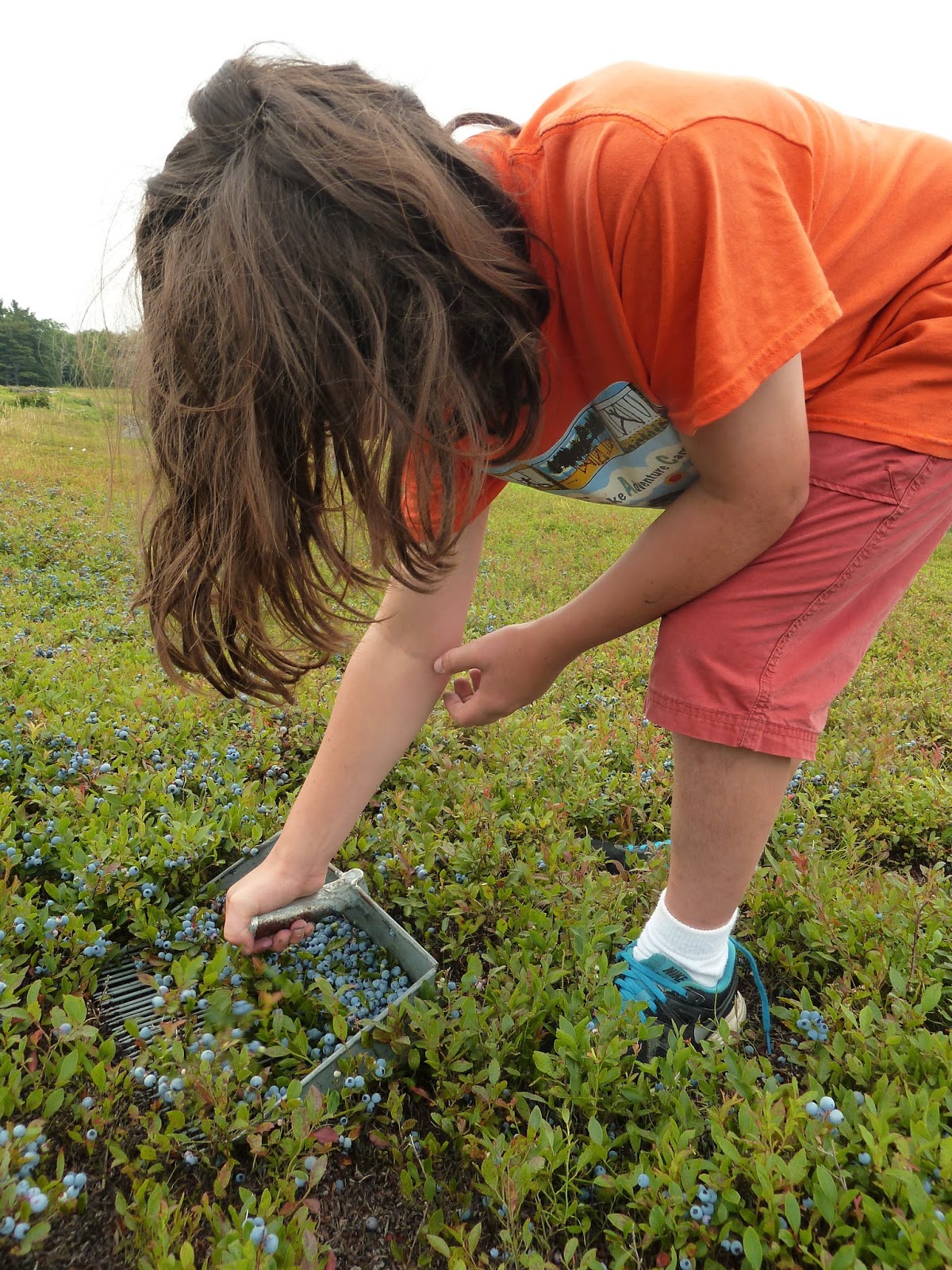 |
| Hilary Dennis, with her harvest game face ON |
By Audrey Barker Plotkin
On a misty August morning before
8 a.m., I find Hilary Dennis in the full swing of a harvest day, picking
hoophouse tomatoes. Over the course of the interview, I am in constant motion to
keep up – up and down the hoophouse rows, into the box truck as she drives the
crew out to the zukes and cukes, then into the cucumber rows. Fortunately, I’ve
had my first cup of coffee.
Hilary studied environmental
studies and Spanish at New York University, where she graduated in 2010. NYU,
in the heart of Manhattan, isn’t where you’d expect to get the farming bug, and
indeed she somewhat backed into farming. First, she became engaged in the local
food dialogue in New York. One summer, she had two internships – one promoting
a new farmers’ market in her hometown of Grafton, Massachusetts, and the other
working on the state Global Warming Solutions Act with the Department of
Environmental Protection. She noticed that although the state sought input from
local farmers on how farms could reduce carbon emissions, those meetings were
scheduled for mid-day during the height of the growing season. This disconnect
between policy-makers and farmers got her thinking that she would like to go to
law school and become an advocate for small farmers in policy. To start from
the ground up in this plan, she decided she should get some experience working
on small farms. Well, the grand plan radically changed on the first day farming
– she fell in love with farm work and now aspires to some day have her own
vegetable farm.
 |
| The Farmall 140, with belly-mounted basket weeder |
Since graduating in 2010, Hilary worked
on several farms in the region, but this is her first experience as a full
season apprentice. She greatly appreciates the opportunities at Simple Gifts
Farm to build her skills. In April, each apprentice is assigned a tractor, and
Hilary jumped at the chance to learn to operate the Farmall 140 – our
second-smallest tractor we use for precision cultivating work. This tractor
also needed a fair bit of maintenance work (typical for this 50-plus-year-old
machine), so Hilary quickly became well-acquainted with the machine, and
learned that being handy with fixing equipment is a key part of keeping a farm
running. Six months later, her favorite job is using the 140 for basket
weeding, and she is looking forward to continuing to develop her field
operations skill-set. When it is her week on the farm lunch rotation, she also
enjoys experimenting with cooking up the produce – she even made ice-cream with
her favorite vegetable, fennel!
When I ask Hilary what stands out
to her about Simple Gifts Farm, she tells me how valuable Jeremy and Dave’s
personalities are. Their patience and support to the crew set the tone for good
morale. To Hilary, this is why despite the unseasonably cool and wet season,
and all sorts of challenges, the crew can work well together to produce an
abundance of amazing food.
We are glad that Hilary will join
us for a second season, and we think her calm cheer and organization will set
the tone for another good year. After she gets more experience managing a farm,
we hope to see her (perhaps with her sister, who is also a farm convert)
running her own successful enterprise.




